第142章 CHAPTER XXXVI. THUGUT$$$$$S FALL.(1)
Tidings of fresh defeats had reached Vienna; more disasters had befallen the army, and the great victory of Marengo had been followed, on the 3rd of December, 1800, by the battle of Hohenlinden, in which Moreau defeated the Austrians under Archduke John. Even Thugut, the immovable and constant prime minister, felt alarmed at so many calamities, and he was generally in a gloomy and spiteful humor.
He felt that there was a power stronger than his will, and this feeling maddened him with anger. He was sitting at his desk, with a clouded brow and closely compressed lips, his sullen eyes fixed on the papers before him, which a courier, just arrived from the headquarters of the army, had delivered to him. They contained evil tidings; they informed him of the immense losses of the Austrians, and of the insolence of the victorious French general, who had only granted the Austrian application for an armistice on condition that the fortresses of Ulm, Ingolstadt and Philipsburg be surrendered to him; and these humiliating terms had been complied with in order to gain time and to concentrate a new army. For Thugut's stubbornness had not been broken yet, and he still obstinately refused to conclude the peace so urgently desired by the whole Austrian people, nay, by the emperor himself.
"No, no, no peace!" he muttered, when he had perused the dispatches.
"We will fight on, even though we should be buried under the ruins of Austria! I hate that revolutionary France, and I shall never condescend to extend my hand to it for the purpose of making peace.
We will fight on, and no one shall dare to talk to me about peace!"
A low rap at the door leading to the reception-room interrupted his soliloquy, and when he had harshly called out, "Come in," his valet de chambre appeared in the door.
"Your excellency," he said, timidly, "Counts Colloredo, Saurau, and Lehrbach have just arrived, and desire to obtain an interview with your excellency."
Not a muscle moved in Thugut's face to betray his surprise, and he ordered the servant in a perfectly calm voice to admit the gentlemen immediately. He then hastily walked to the door for the purpose of meeting them. They entered a few minutes later: first, Count Colloredo, minister of the imperial household; next, Count Saurau, minister of police; and last, Count Lehrbach, minister without portfolio. Thugut surveyed the three dignitaries with a single searching glance. He perceived that good-natured Count Colloredo looked rather frightened; that the ferocious eyes of Count Lehrbach were glistening like those of a tiger just about to lacerate his victim: and that Count Saurau, that diplomatist generally so impenetrable, permitted a triumphant smile to play on his lips. With the sure tact which Thugut never lost sight of, he saw from the various miens of these three gentlemen what had occasioned their call upon him, and his mind was made up at once.
He received them, however, with a pleasant salutation, and took the hand of Count Colloredo in order to conduct him to an armchair.
Colloredo's hand was cold and trembling, and Thugut said to himself, "he is charged with a very disagreeable message for me, and he is afraid to deliver it."
"Your excellency is doubtless astonished to see us disturb you at so unexpected an hour," said Count Colloredo, in a tremulous voice, when the four gentlemen had taken seats.
"No, I am not astonished," said Thugut, calmly. "You, gentlemen, on the contrary, have only anticipated my wishes. I was just about to invite you to see me for the purpose of holding a consultation, very disastrous tidings having arrived from the headquarters of our army.
We have lost a battle at Hohenlinden--Archduke John has been defeated."
"And Moreau has already crossed the Inn and is now advancing upon Vienna," said Count Lehrbach, with a sneer. "You have made some terrible mistakes in your hopes of victory, minister."
"Yes, indeed, you have made some terrible mistakes, my dear little baron," said Count Saurau, laying particular stress on the last words.
Thugut fixed a laughing look on him. "Why," he said, "how tender we are to-day, and how big your beak has grown, my dear little count!
You seem but slightly afflicted by the misfortunes of the empire, for your face is as radiant as that of a young cock that has just driven a rival from its dunghill. But it must have been a very stupid old cock that has condescended to fight with you. Now, my dear Count Colloredo, let us talk about business. We have been defeated at Hohenlinden, and Moreau is advancing upon Vienna. These are two facts that cannot be disputed. But we shall recover from these blows; we shall send a fresh army against Moreau, and it will avenge our previous disasters."
"However, your excellency, that is a mere hope, and we may be disappointed again," replied Colloredo, anxiously. "The emperor, my gracious master, has lost faith in our victories, unless we should have an able and tried general at the head of our forces--a general equally trusted by the army and the nation."
"Let us, then, place such a general at the head of the army," said Thugut, calmly; "let us immediately appoint Archduke Charles commander-in-chief of the Austrian forces."
"Ah, I am glad that you consent to it," exclaimed Colloredo, joyfully, "for the emperor has just instructed me to go to his distinguished brother and to request him in the name of his majesty to resume the command-in-chief."